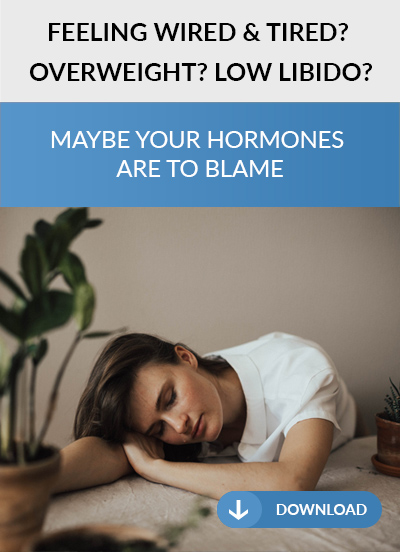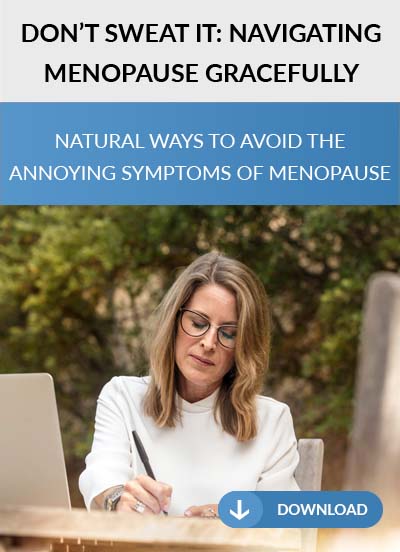September is PCOS awareness month!
PCOS (polycystic ovarian syndrome) is the most common female hormone disorder, and affects about 1 in 10 women.
If you have PCOS, you’re in good company! So do:
Fitness expert Jillian Michaels, from The Biggest Loser

Actress and singer, Lea Michele from Glee

Spice Girl and fashionista, Victoria Beckham

But many women who suffer with symptoms of PCOS have no idea! (Many women have never even heard of it!)
Here are the five most common symptoms of PCOS
Acne – Many teenagers struggle with acne, but in PCOS it doesn’t go away just because you’re grown up.
Excess hair growth in places you don’t want it! (Like on the face and chest). For some women this is because of their ethnicity, but sometimes PCOS is the cause.
Loss of scalp hair – While breaking out in pimples and having to wax a mustache may start young (in the teens or 20s) the hair loss becomes more noticeable later – in the 30s and 40s. Hair loss is on the crown and temples, like in male pattern baldness.
Weight gain – not everyone with PCOS is overweight, but about 70% are. Women with PCOS have a harder time losing weight and keeping it off.
Irregular periods – PCOS can cause infrequent periods (or no periods at all!) or you can get your period more often (even every couple of weeks). Periods can be light and short or heavy and last a week or longer. But predictable, “normal” periods are elusive for most women with PCOS.
Despite the name, you don’t have to have a history of ovarian cysts to have PCOS. But often on an ovarian ultrasound, your gynecologist will see small cysts in your ovaries. Sometimes you can develop a large cyst that ruptures and is very painful (you may think you have appendicitis, and you may even go to the emergency room because of the pain). But many women with PCOS never have this experience.
What causes PCOS?
PCOS is a condition caused by hormone imbalances. There is a genetic component (if you mom had PCOS, you have a greater chance of developing it as well).
The main underlying problems are
- Too much testosterone – your ovaries produce too much testosterone (and related “androgen” hormones, like DHEA) that result in the acne, hair growth, and male pattern hair loss.
- Insulin resistance – insulin is the hormone that regulates your blood sugar. In PCOS, your cells don’t use insulin properly, so you have to make more in order to get your blood sugar controlled. Excess insulin is a problem because it is the “fat storing” hormone – hence the weight gain. Women with PCOS have a significant risk of developing full blown diabetes in the future. More insulin also triggers more testosterone production
- Ovarian dysfunction – a major problem in PCOS is that you don’t predictably ovulate. The ovaries don’t release an egg every cycle. If the egg isn’t released, that can result in a cyst forming. Lack of ovulation also leads to the irregular periods (often no periods at all for long stretches, even years!). Because you aren’t ovulating regularly, it can be more difficult to get pregnant, and you may need some help (we’ll talk more about this coming up).
This is a complex hormonal situation. Too much insulin causes you to make more testosterone. Too much testosterone triggers you to make more insulin, and inhibits ovulation. When you gain weight, because of the insulin, your body fat cells release inflammation compounds that make you more insulin resistant (so you have to make MORE insulin). It’s a vicious cycle!
Other possible complications of PCOS…
Women with PCOS have increased risks for other health conditions.
Gestational diabetes
Miscarriages
Metabolic syndrome (high cholesterol, high triglycerides, high blood pressure, high blood sugar and obesity)
Sleep apnea
Type 2 diabetes
Fatigue
Anxiety and depression
What can be done for PCOS?
The first step is to see your doctor to confirm the diagnosis. There are blood tests that can be done to look at your hormone levels, and sometimes an ovarian ultrasound may be done to look for cysts.
Traditionally, women with PCOS end up on a lot of prescription medicines.
Birth control pills can regulate your periods and (since the block some of your testosterone) they also decrease acne.
Metformin is a diabetes medicine that helps control blood sugar. It can help you to reduce the amount of insulin you produce, which may help stabilize your weight.
Spironolactone is a blood pressure medicine that also acts as a testosterone blocker. It can help reduce acne and facial hair growth.
Clomiphene (Clomid) can help trigger ovulation, when you are ready to start your family.
The problem that I see with these prescription medicines, is that they are all trying to minimize your symptoms (which is great!) but they aren’t really fixing the underlying problem.
Many women have irregular periods as teens, and get started on birth control pills to regulate their period. They stay on the pill for years, until they are ready to start their family, only to find that they don’t get their period (or at least not regularly) and they have a hard time conceiving.
Are there any natural options?
Healthy lifestyle habits can help balance your hormones!
Exercise – regular exercise is very helpful for everyone, but especially for women with PCOS. Studies have shown that women with PCOS who exercise regularly have more regular ovulation. Exercise helps your cells use insulin more effectively (so you don’t have to make as much). As your insulin level goes down, there will be less stimulation of testosterone production. And of course exercise can help you lose weight!
Reduce stress – when you have stress, your body will make more cortisol (your main stress hormone) to help you cope. Cortisol causes more problems with insulin. It also causes you to gain more weight (especially on your belly, and belly fat is especially prone to releasing the inflammatory compounds that make insulin resistance worse) – so even more weight gain!
Healthy diet – we all know we should eat healthy. For women with PCOS, healthy foods can be a game changer. Because of the blood sugar problems, a low carb diet is especially helpful. Avoid starches, like bread, pasta, rice, and potatoes, and instead focus on non-starchy veggies, fruit in moderation, healthy fats (like avocado, olive oil and nuts), and healthy protein, like fish. Because PCOS is a permanent problem, going on a short term weight loss program isn’t going to permanently fix the problem. Being too strict with your nutrition is unsustainable. You don’t have to be perfect. But watching the sugar and junk food in your diet, and eating a diet lower in carbs is really important to help you feel your best.
Lose weight – losing weight is harder for women with PCOS because your hormone pattern wants to cause weight gain. But its not impossible! And the good news is that even just losing 5% of your body weight can lead to very significant improvements in your hormone balance and in your symptoms!
Avoid toxins – we are all exposed to toxins on a daily basis. Our liver helps us to flush the chemicals from our system. It appears that women with PCOS are “poor detoxifies”, meaning that your liver and other detox pathways don’t work as well. Toxins can accumulate in your body and cause you to have problems, where your next door neighbor may be exposed to the exact same toxins and seem completely fine. Many of these toxins are hormone disrupters (meaning that they interfere with how your hormones work, and since your’s weren’t doing their best in the first place, this can cause big problems.
Do your best to avoid exposure to unnecessary chemicals by trying to use “green” cleaning supplies, look for healthier options for personal care products (especially avoid products containing parabens), and try to avoid the use of plastic (for example use glass or stainless steel water bottles instead).
Nutritional supplements for PCOS
Myo-inositol is a nutrient that has been shown in medical studies to help improve blood sugar and increase ovulation
Berberine is an herbal supplement that helps regulate blood sugar and cholesterol (as well as helping to balance the healthy bacteria in your gut)
There is hope!
If you have PCOS, becoming informed and an active participant in your health is important. A good resource is the book PCOS SOS, by Dr Felice Gersh, who is an Integrative Gynecologist (and has PCOS herself).
We see women everyday who are struggling with their symptoms, but it is possible to overcome the challenges and thrive!
Yours in health,
Dr Deb





